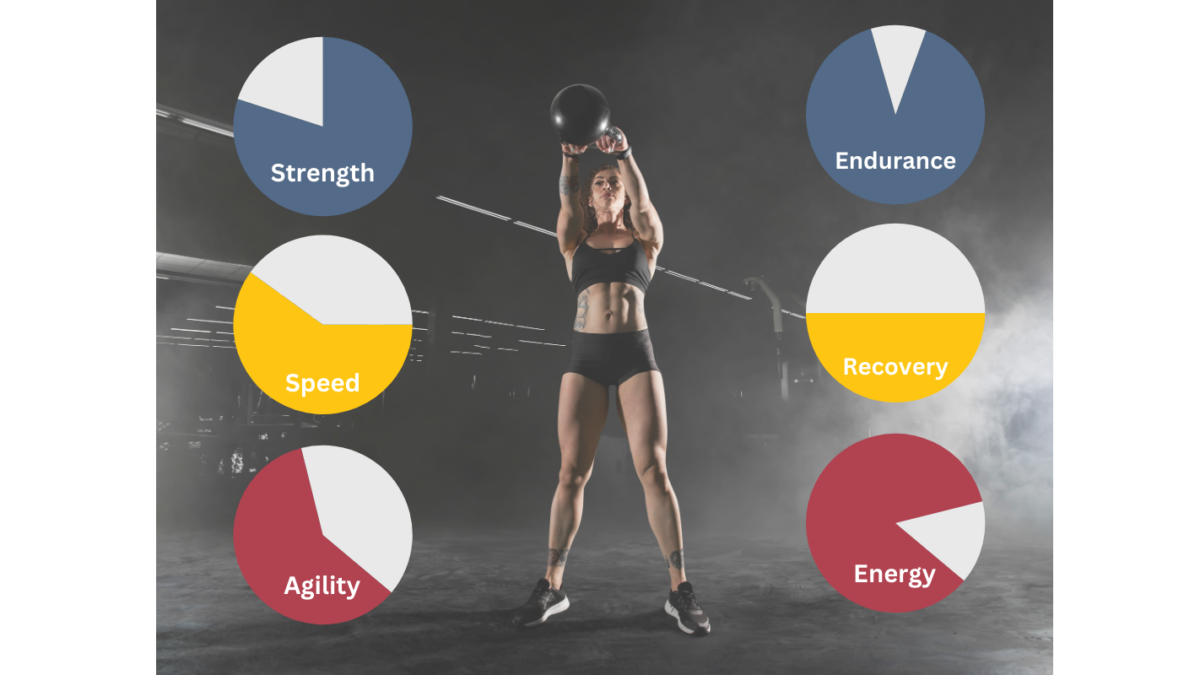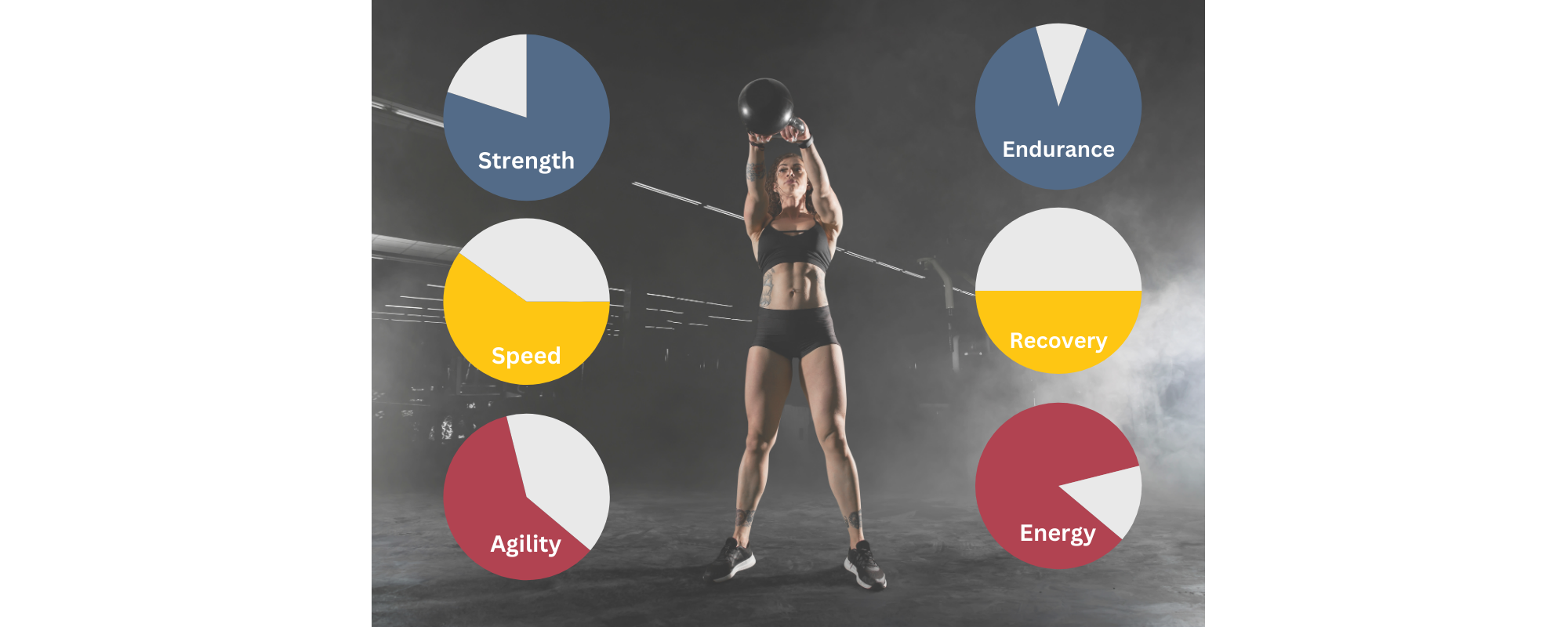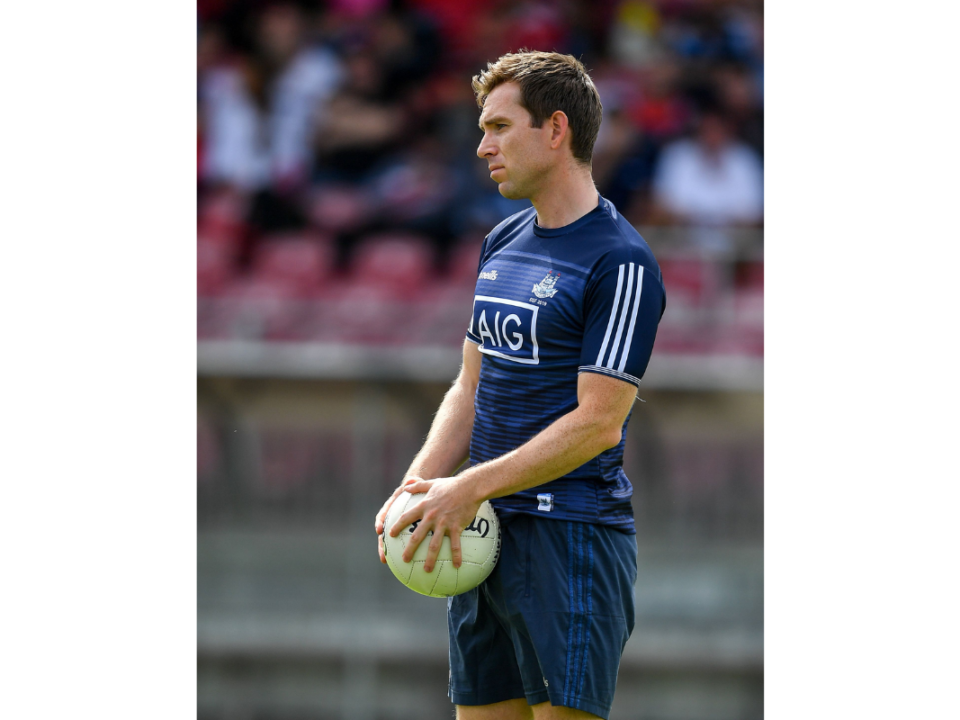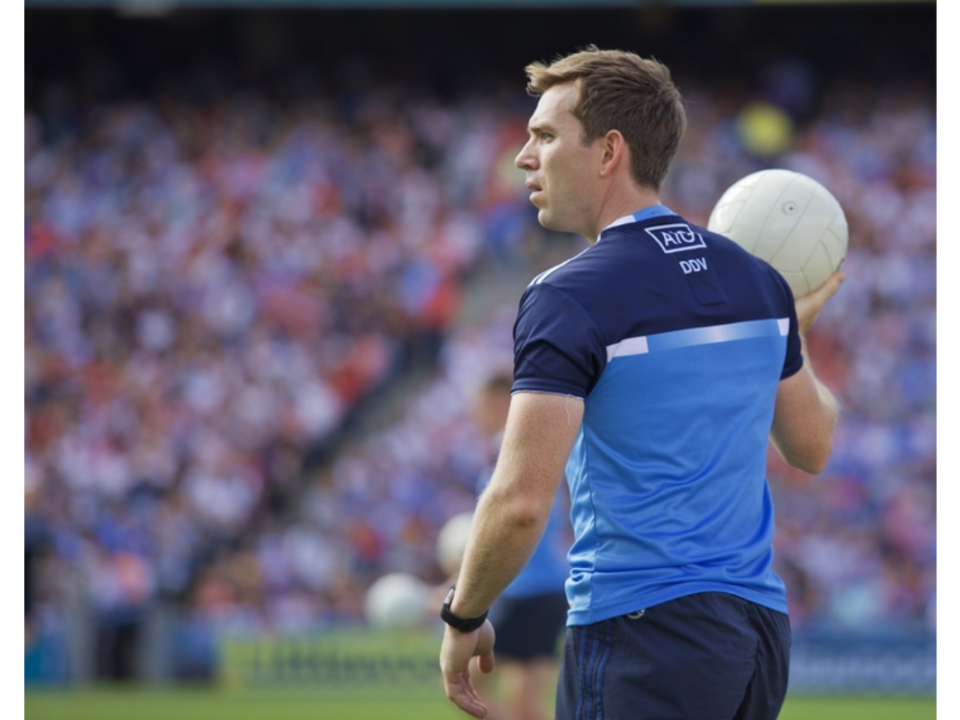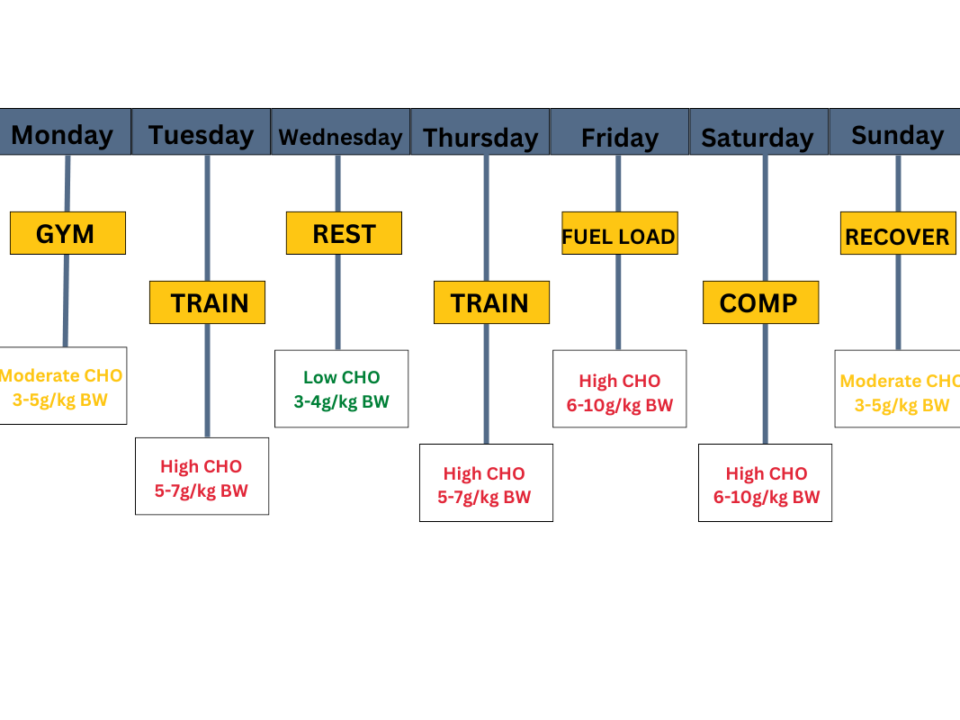
Pesto Eggs and Avocado Toast
February 19, 2024
Quinoa Chicken Bowl
February 21, 2024
Pesto Eggs and Avocado Toast
February 19, 2024
Quinoa Chicken Bowl
February 21, 2024Exercise Specificity, Joined Thinking and Performance
You might wonder why an article on exercise specificity and periodisation would be important for your nutrition strategy? In the realm of high performance, everything is connected. The type of athlete you want to be will determine the focus of your training, how you invest your time, schedule your sessions, the level of energy you consume, food you eat and drink. The more you see how the pieces fit into a wider picture the easier it is to build consistency.
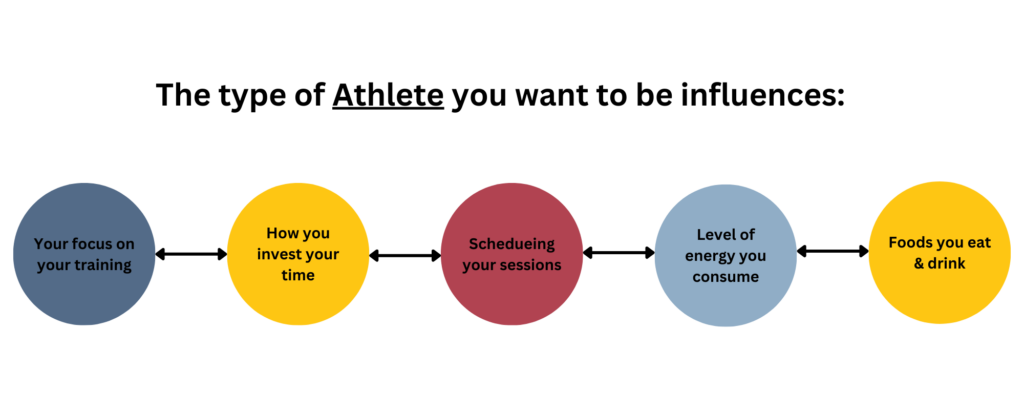
To achieve peak athletic performance, the concept of training specificity and training periodisation is a fundamental aspect of athletes planning to be at their physical and mental best when it matters most. For team sport athletes they need to be lean, fit, fast, strong and then capable of executing the skills of the game under intense pressure. For endurance athletes they need to be fit, fast and resistant to injury and capable of completing high volume aerobic activity for hours at a time. Achieving these attributes takes careful planning and support and guidance from experienced coaches. It involves tailoring training programs to closely mimic the demands of the target activity or sport, ensuring optimal adaptation and performance enhancement.
However, achieving peak performance isn’t a one-size-fits-all approach; it requires a strategic integration of macro, meso and microcycles, coupled with meticulous attention to nutrition, adequate sleep and energy needs. This holistic approach not only hones physical attributes but also cultivates mental resilience, ultimately enabling athletes to excel when it matters most.

Understanding Training Specificity
At its core, training specificity emphasises the need for exercises and drills that closely resemble the movements, energy systems, and skill sets required in competition. To achieve this holistic approach you need to look at long, medium and short term performance goals. This helps athletes create a clear long term focus on who they want to be and how they want to perform. This is particularly important for young athletes because they can get caught up in wanting to have a certain performance profile of an elite sports person and not understand how to get there. When you break the year down into phases you can clearly identify what you want to achieve for each phase, keeping you present and focused on the month, week, day and training session.
Macrocycles encompass long-term training plans, typically spanning several months to a year, aimed at achieving overarching performance goals. Meso- and microcycles, on the other hand, zoom in on shorter time frames, refining specific aspects of performance and facilitating recovery.
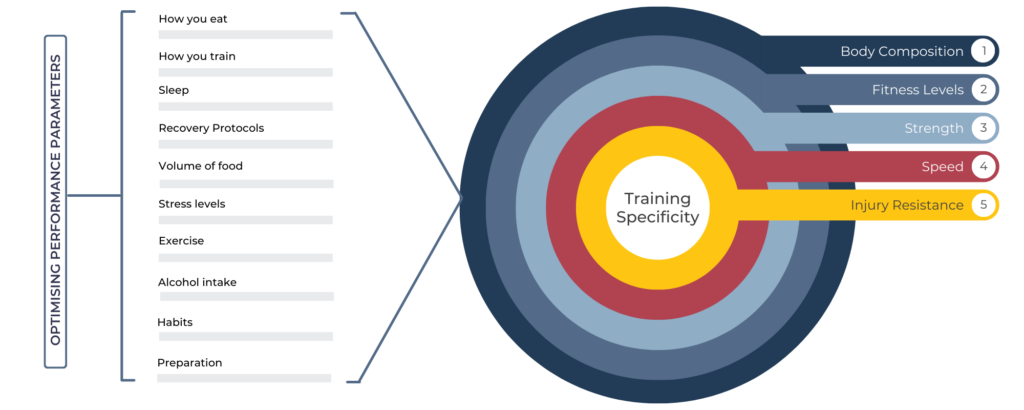
Optimising Performance Parameters
Training specificity extends beyond mere skill acquisition; it encompasses a multidimensional approach to performance enhancement. Body composition, fitness levels, strength, speed, and injury resistance emerge as key parameters. By aligning training protocols with these targets, athletes can systematically enhance their capabilities, building a comprehensive athletic profile. The timing of when the focus is on these performance parameters is vital. For example, when working with either Dublin football players or Leinster Rugby players, body composition targets would not be discussed when performance was the focus. The attention was placed entirely on everything that was needed to perform in big games, irrespective of where an athlete’s fat or lean mass was. This allows for total focus on the routines, habits and actions that will prepare the athlete for competition, with no distraction. Imagine preparing for a big game and you are thinking about how to create a calorie deficit?
Macrocycle Planning: Setting the Stage for Success
Macrocycle planning lays the groundwork for sustained performance progression. In simple terms a ‘macrocycle’ plan is an annual or season plan, ‘mesocycle’ weeks or months and microcycle is the days and weeks where training has a specific focus. It involves periodisation strategies that manipulate training volume, intensity, and frequency to elicit optimal adaptations while managing fatigue. By strategically varying training stimuli across different phases, athletes can prevent plateaus and peak at key competitions. It also allows for athletes to focus on potential areas of improvement based on feedback from coaches and management.
Meso- and Microcycle Refinement: Fine-Tuning Performance
Meso- and microcycles delve into the minutiae of training, refining specific skills and physiological attributes. These shorter cycles allow for targeted interventions, such as strength training blocks, speed development sessions, or skill refinement drills. By addressing individual components of performance in a focused manner, athletes can systematically bridge the gap between their current capabilities and desired outcomes. Each phase of development should bring the athlete closer to their vision of what they want to execute.
In practical training terms you will have a:
- Base phase: Build muscular endurance and base strength.
- Strength phase: Strength and conditioning training to build strength and resistance to injury.
- Peak phase: Focus on power, speed, mechanics and strength maintenance.
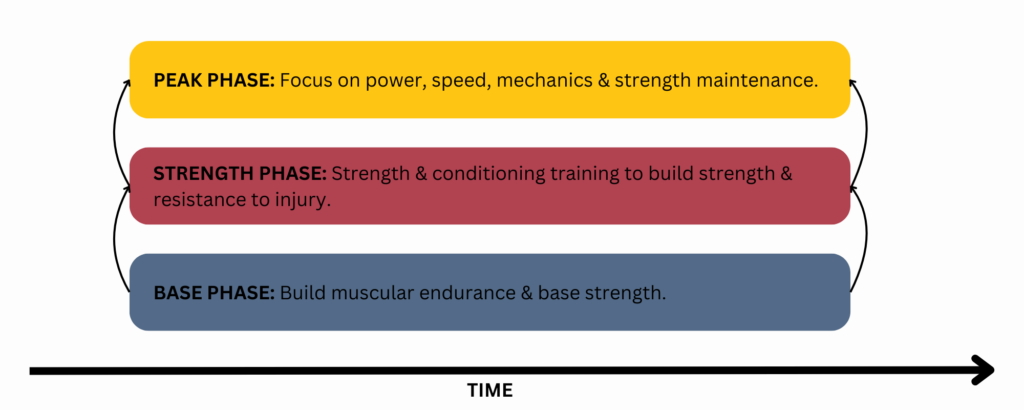
Nutrition and Energy Alignment: Fueling Performance
Central to optimising training specificity is the alignment of nutrition and energy needs with the demands of training and competition. Adequate energy intake, macronutrient balance and timing of meals play pivotal roles in supporting performance adaptation, facilitating recovery and maintaining overall health. Carbohydrates, proteins, fats, vitamins and minerals assume critical significance in meeting the metabolic demands of training while promoting optimal body composition and physical resilience. This is where our experience and expertise really come in! We help athletes understand exactly what to eat for a week of training, competition, the days of training and during training or competition! But if you don’t know exactly where you are on your plan, the volume or intensity of your sessions it’s harder to build an individualised plan.
Cultivating Mental Resilience: The X-Factor in Performance
Beyond physical prowess, training specificity cultivates mental resilience and higher levels of clarity – key determinants of performance under pressure. By simulating competition scenarios, athletes acclimatise to stressors, hone concentration and develop coping strategies. Visualisation techniques, mindfulness practices and psychological skills training complement physical preparation, equipping athletes with the psychological edge needed to excel in high-stakes situations. All of these elements combined with the aligned focus on the most important habits and actions allows athletes to build the best possible performance template.
Conclusion
Training specificity, encompassing macro, meso and microcycles, stands as a cornerstone principle in maximising athletic performance. By aligning training protocols with the demands of competition and integrating nutrition and energy needs, athletes can systematically enhance performance parameters such as body composition, fitness, strength, speed and resistance to injury. Moreover, this holistic approach cultivates mental resilience, enabling athletes to perform at their best when it matters most – on the grand stage of competition.
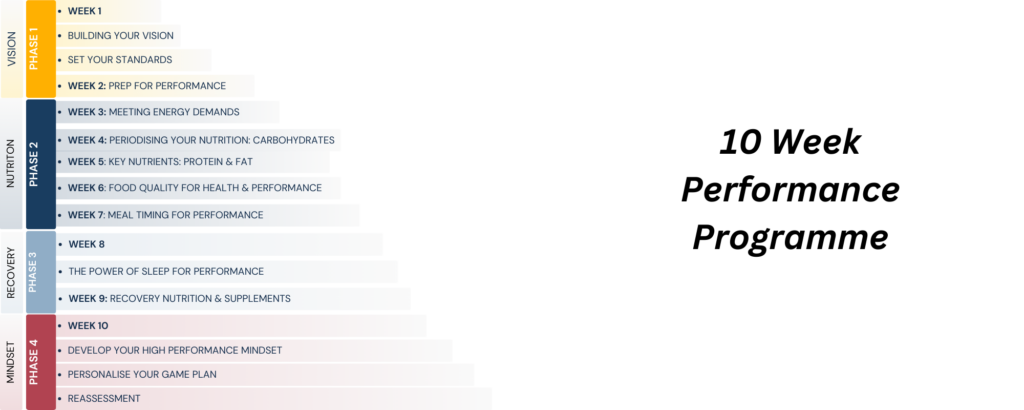
We are kicking off our first ever 10 week performance series which will cover the key pillars of performance. Along with full access to our incredible website with articles, recipes and meal planning tools you will receive an email each week covering a key topic of performance nutrition. Not only that but there is group support for the 10 weeks of the programme! All for less than 40 euro!! This is a once-off offer with limited spaces.
Our 10 week Programme begins on the 1st of March
Register your interest here!
Exercise Specificity, Joined Thinking and Performance
You might wonder why an article on exercise specificity and periodisation would be important for your nutrition strategy? In the realm of high performance, everything is connected. The type of athlete you want to be will determine the focus of your training, how you invest your time, schedule your sessions, the level of energy you consume, food you eat and drink. The more you see how the pieces fit into a wider picture the easier it is to build consistency.

To achieve peak athletic performance, the concept of training specificity and training periodisation is a fundamental aspect of athletes planning to be at their physical and mental best when it matters most. For team sport athletes they need to be lean, fit, fast, strong and then capable of executing the skills of the game under intense pressure. For endurance athletes they need to be fit, fast and resistant to injury and capable of completing high volume aerobic activity for hours at a time. Achieving these attributes takes careful planning and support and guidance from experienced coaches. It involves tailoring training programs to closely mimic the demands of the target activity or sport, ensuring optimal adaptation and performance enhancement.
However, achieving peak performance isn’t a one-size-fits-all approach; it requires a strategic integration of macro, meso and microcycles, coupled with meticulous attention to nutrition, adequate sleep and energy needs. This holistic approach not only hones physical attributes but also cultivates mental resilience, ultimately enabling athletes to excel when it matters most.

Understanding Training Specificity
At its core, training specificity emphasises the need for exercises and drills that closely resemble the movements, energy systems, and skill sets required in competition. To achieve this holistic approach you need to look at long, medium and short term performance goals. This helps athletes create a clear long term focus on who they want to be and how they want to perform. This is particularly important for young athletes because they can get caught up in wanting to have a certain performance profile of an elite sports person and not understand how to get there. When you break the year down into phases you can clearly identify what you want to achieve for each phase, keeping you present and focused on the month, week, day and training session.
Macrocycles encompass long-term training plans, typically spanning several months to a year, aimed at achieving overarching performance goals. Meso- and microcycles, on the other hand, zoom in on shorter time frames, refining specific aspects of performance and facilitating recovery.

Optimising Performance Parameters
Training specificity extends beyond mere skill acquisition; it encompasses a multidimensional approach to performance enhancement. Body composition, fitness levels, strength, speed, and injury resistance emerge as key parameters. By aligning training protocols with these targets, athletes can systematically enhance their capabilities, building a comprehensive athletic profile. The timing of when the focus is on these performance parameters is vital. For example, when working with either Dublin football players or Leinster Rugby players, body composition targets would not be discussed when performance was the focus. The attention was placed entirely on everything that was needed to perform in big games, irrespective of where an athlete’s fat or lean mass was. This allows for total focus on the routines, habits and actions that will prepare the athlete for competition, with no distraction. Imagine preparing for a big game and you are thinking about how to create a calorie deficit?
Macrocycle Planning: Setting the Stage for Success
Macrocycle planning lays the groundwork for sustained performance progression. In simple terms a ‘macrocycle’ plan is an annual or season plan, ‘mesocycle’ weeks or months and microcycle is the days and weeks where training has a specific focus. It involves periodisation strategies that manipulate training volume, intensity, and frequency to elicit optimal adaptations while managing fatigue. By strategically varying training stimuli across different phases, athletes can prevent plateaus and peak at key competitions. It also allows for athletes to focus on potential areas of improvement based on feedback from coaches and management.
Meso- and Microcycle Refinement: Fine-Tuning Performance
Meso- and microcycles delve into the minutiae of training, refining specific skills and physiological attributes. These shorter cycles allow for targeted interventions, such as strength training blocks, speed development sessions, or skill refinement drills. By addressing individual components of performance in a focused manner, athletes can systematically bridge the gap between their current capabilities and desired outcomes. Each phase of development should bring the athlete closer to their vision of what they want to execute.
In practical training terms you will have a:
- Base phase: Build muscular endurance and base strength.
- Strength phase: Strength and conditioning training to build strength and resistance to injury.
- Peak phase: Focus on power, speed, mechanics and strength maintenance.

Nutrition and Energy Alignment: Fueling Performance
Central to optimising training specificity is the alignment of nutrition and energy needs with the demands of training and competition. Adequate energy intake, macronutrient balance and timing of meals play pivotal roles in supporting performance adaptation, facilitating recovery and maintaining overall health. Carbohydrates, proteins, fats, vitamins and minerals assume critical significance in meeting the metabolic demands of training while promoting optimal body composition and physical resilience. This is where our experience and expertise really come in! We help athletes understand exactly what to eat for a week of training, competition, the days of training and during training or competition! But if you don’t know exactly where you are on your plan, the volume or intensity of your sessions it’s harder to build an individualised plan.
Cultivating Mental Resilience: The X-Factor in Performance
Beyond physical prowess, training specificity cultivates mental resilience and higher levels of clarity – key determinants of performance under pressure. By simulating competition scenarios, athletes acclimatise to stressors, hone concentration and develop coping strategies. Visualisation techniques, mindfulness practices and psychological skills training complement physical preparation, equipping athletes with the psychological edge needed to excel in high-stakes situations. All of these elements combined with the aligned focus on the most important habits and actions allows athletes to build the best possible performance template.
Conclusion
Training specificity, encompassing macro, meso and microcycles, stands as a cornerstone principle in maximising athletic performance. By aligning training protocols with the demands of competition and integrating nutrition and energy needs, athletes can systematically enhance performance parameters such as body composition, fitness, strength, speed and resistance to injury. Moreover, this holistic approach cultivates mental resilience, enabling athletes to perform at their best when it matters most – on the grand stage of competition.

We are kicking off our first ever 10 week performance series which will cover the key pillars of performance. Along with full access to our incredible website with articles, recipes and meal planning tools you will receive an email each week covering a key topic of performance nutrition. Not only that but there is group support for the 10 weeks of the programme! All for less than 40 euro!! This is a once-off offer with limited spaces.
Our 10 week Programme begins on the 1st of March
Register your interest here!
Upgrade NOW
Upgrade NOW



